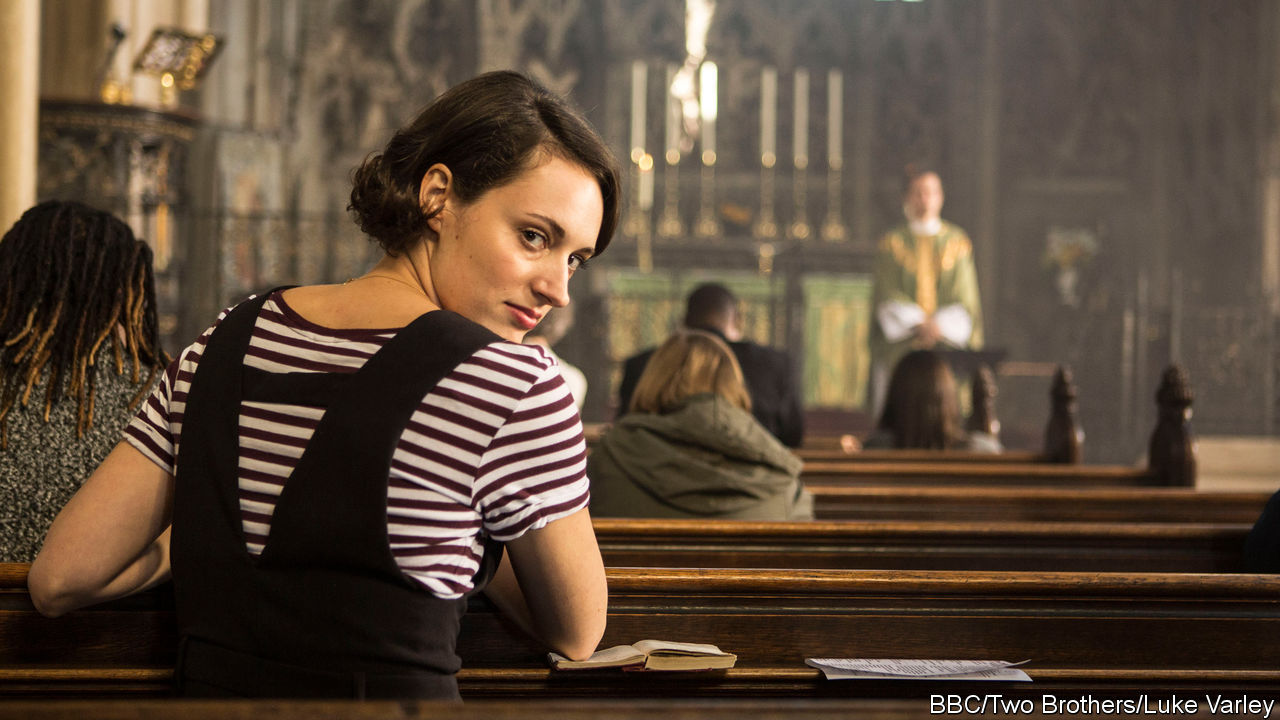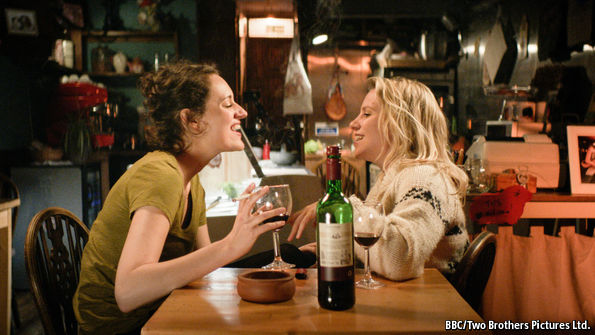Last night I preached at Guildford Cathedral for the last time (probably need to change the title of this blog now!). It is one of the riskiest and toughest sermons I've delivered. Risky because talking about Fleabag might be a bit left-field. Tough because it was about love. Tougher still became it explores how we place/misplace it and because it talks about power. But the incarnation is nothing if not about the risk of God's love for us - and of the power of resurrection to transform our 'body language'. I want our churches to be safe.
The texts for Evensong on 12 May were Isaiah 63:7-14 and Luke 24:36-49
Having been appointed, as rumour has it, because of an answer to a question about Rev it is only appropriate to being this sermon with another BBC series: Fleabag.
Some reviewers called it: Heart-rending and darkly hysterical.
Others called it sharp and shocking.
When Phoebe Waller-Bridge brought Fleabag back to our screens, her protagonist announces ‘This is a love story’.
It’s a love story which presses into the harsh realities of grief, guilt and addiction; which casts light on arrogance and exploitation; which somehow graces our attempts to muddle through.
As friends, colleagues, siblings, parents; as disciples and those called to Christian leadership Waller-Bridge holds up a mirror. She dismisses love’s fairytale; brings us in on the joke, the therapy, the struggle. But when she breaks the forth-wall, it’s us she gazes at.
This is a story which explores where we place and misplace love.
‘I don’t know what to do with it’ says Fleabag of all the love she has for her mother. Following her death, she says to her friend Boo ‘I don’t know where to put that love now.’
Fleabag laughs when Boo says she’ll take it. ‘I’m serious’ she says, ‘It sounds lovely. I’ll have it’.
We have so much love that our hearts cannot contain it; nor remain silent.
We can be so greedy for love that we risk clinging on far too tightly; suffocating it.
We love so passionately that our hearts break; healed with tenderness.
Sometimes we, like Fleabag, don’t know quite what to with our most precious loves. Like her, the church can be guilty of reducing intimacy to sex; of learning another’s vulnerabilities only to exploit them; of grieving another and not knowing how to channel the depth of our affection; or being so afraid that we resort to control.
How can this be a love story?
For Waller-Bridge, the institutional embodiment of this obsessive misplaced love is the sweary gin-drinking, far from perfect priest. His crossing of boundaries of trust and friendship creates a co-dependence; a vortex of collusion and abusive behaviour.
This is an uncomfortable place to be.
Perhaps that is why Fleabag is so heart-rending: it reveals the extent to which we are capable of power games; it reveals our longing for catharsis, for redemption and for peace.
Yet there is love which feels like hope.
A love which dares to confront and transform our fears.
Isaiah knew of this love as he recounted the gracious deeds of the Lord.
This is God’s love story. The one which is to be our plumb line; the love which shapes our hearts and minds.
This love is abundant and steadfast: it raises a people up that they may flourish; it carries them when they are weak.
This love is merciful and just: it calls out the false dealings; it is grieved by enmity, rebellion and power games.
This is the love we are to remember: love which liberates; love which creates within us a new heart.
This love is alpha and omega; compassion, unbounded.
Love begotten of the Father: love divine, all loves excelling.
Love which scatters fear and gloom.
This love comes among us when we are fearful, joyful, startled and doubting saying:
shalom aleichem; peace be with you.
This embodied love is not a ghost; it is something new.
The body born of Mary; the body which brought healing and broke bread; the body which calmed storms and ate with those of the margins.
In this body, the fullness of God was pleased to dwell.
This body holy and human. This body was betrayed and died on the cross.
This body was laid in a stranger’s tomb; this resurrected body is real, imperishable, glorious and powerful.
This risen body, fulfils the law of love and the prophetic cries for justice; this death defying love, opens our minds to the scriptures.
This love sets in train a proclamation of repentance and forgiveness: here we're accountable for the placing or misplacing of our love; grieving the harm we do. Here we walk with others with changed hearts; being mindful of the traumas and dreams of our fragile bodies.
The love we are to place measured by the Spirit’s wisdom: by the fruit of joy and peace, and a refusal to diminish the other. Such love waits patiently with the vulnerable, allowing them to thrive. It guards our own hearts with self-control.
Our anthem describes our Lord’s body as the living and life-giving bread; a soft self-wounding pelican. This love mixes with our mortality; and raises us up. It increases our hope and grants us peace.
This love demands more of us to ensure that the church becomes a safe space.
To be a community whose body language witnesses to kindness and justice; a body which recognises patterns of bullying and embodies instead gestures of liberation; which dispels delusions and embraces ways of wisdom and truth.
In the power of the Spirit, we are called to love in the way God so loved the world in Christ: with maturity and tenderness; building up and restoring.
Father, pour out your Spirit upon us and grant us a new vision of you glory; a new experience of your power; a new faithfulness to your word; and a new consecration to your service; that your love may grow among us; and your kingdom come: through Christ our Lord. Amen.
© Julie Gittoes 2019



